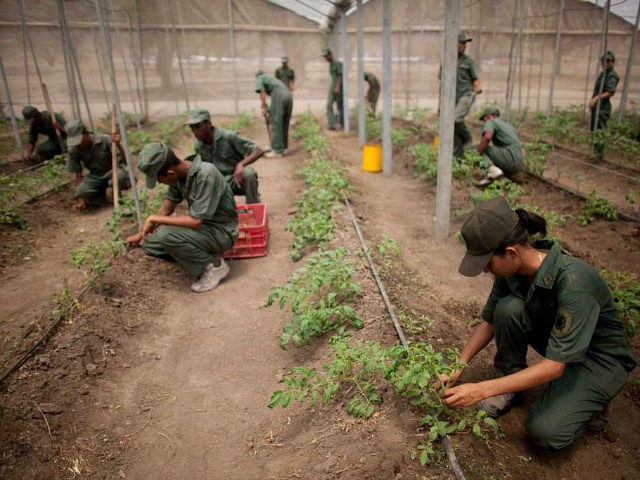The Venezuelan Episcopal Conference, the organization of the nation’s Catholic bishops, has issued a scathing statement condemning socialist president Nicolás Maduro for giving the military full control of the nation’s food supply, accusing him of being at the helm of a devastating “moral crisis” crippling every aspect of life in Venezuela.
“The constant preaching of hate, criminalization and punishment of all dissidents affects the family and social relations. Before this situation, the growth of military power is a threat to tranquility and peace,” the Venezuela’s bishops wrote in their statement, condemning the move to place the Defense Ministry in charge of food distribution nationwide, announced earlier this week.
“The bellicose and aggressive discourse from official leadership makes life more difficult every day,” they continued. “The quality of life has diminished drastically. Shortages and lack of food, medicine, and hospital supplies are taking us to the border of a security, nutritional, and sanitary crisis, with unpredictable social consequences.”
“In public life, insecurity, impunity, and military repression are on the rise,” the bishops write. The group attributes the collapse of Venezuelan society to “the implementation of a totalitarian, impoverishing, non-democratic and centralized political project.” They accuse Venezuelan socialist politicians of corruption and “moral decay” and demand the reopening of the Colombian-Venezuelan border as well as cooperation between the government and the Catholic church for distribution of medicine and food.
President Maduro announced on Wednesday that the army would be in charge of distributing food because the nation’s food shortages were not a product of socialist economic mismanagement, but an “unconventional war” waged by the United States against Caracas. In any war, the government should deploy the military, he argued. Military control over the food supply will replace a program known as the CLAP, in which local Socialist Party (PSUV) leaders were in charge of distributing food to their neighborhoods at their discretion. The CLAP were widely unpopular as they often rewarded party loyalty with food and left anti-socialists hungry.
The call from the bishops to open the border with Colombia also follows a temporary move by the government to open the border last Sunday. The border has historically been open, with nationals of both countries flowing relatively freely between Cúcuta, Colombia, and the Venezuelan state of Táchira. Last year, Maduro shut the border and violently deported thousands of Colombian nationals, on many occasions splitting families in two. The border re-opened for the first time for 12 hours on Sunday. 35,000 Venezuelans poured into Cúcuta to buy food and medicine. To save face, the Chavista governor of Táchira claimed that “there is no hunger here” and those looking for food in Colombia crossed the border “for fun.”
The nation’s conference of bishops has long been a thorn in the side of the Maduro government, which succeeded the dictatorship of Hugo Chávez in 2013. The following year, amid violent crackdowns on dissident leaders, the conference accused Maduro of using “torture,” “persecution,” and “restriction of information” to perpetuate himself in power. The bishops have repeatedly blamed “a Marxist-Socialist or Communist political-economic system” for the food shortages, power outages, and medical emergencies in Venezuela in the past two decades.

COMMENTS
Please let us know if you're having issues with commenting.